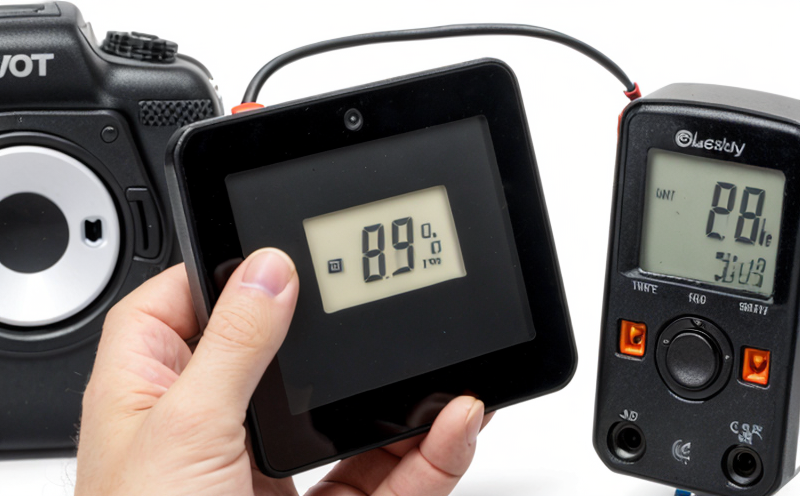Capacitor Safety Testing in Electronics
In today’s electronics-driven world, capacitors play a crucial role in storing and releasing electrical energy. However, their function can be compromised by design flaws or manufacturing defects that could lead to failure under operational conditions. For consumer products, this risk is especially significant as it directly impacts the safety and reliability of end-user devices. This section will explore the essential aspects of capacitor safety testing, focusing on how our laboratory ensures compliance with relevant standards and regulatory requirements.
Consumer electronics encompass a wide array of products including smartphones, tablets, televisions, and wearable devices. These items are often exposed to harsh environmental conditions such as temperature fluctuations, mechanical stress from frequent use, and voltage surges from power supplies. Capacitors within these devices must withstand these stresses without compromising their integrity or performance.
Our testing process begins with a thorough review of the product specifications provided by our clients. This step ensures that we understand the intended operating environment and any specific requirements set forth by relevant standards. Following this, we perform detailed circuit analysis to identify critical components like capacitors and determine their role in the overall system.
The testing itself involves several key steps designed to evaluate different aspects of capacitor performance:
- Electrostatic Discharge (ESD): Simulates real-world scenarios where static electricity might cause damage. We use specialized equipment to subject the capacitors to ESD events.
- Voltage Testing: Ensures that the capacitor can operate safely within specified voltage ranges without failure or degradation of performance.
- Thermal Cycling: Mimics the temperature variations experienced during typical usage. This helps us assess the stability and longevity of the capacitors under varying thermal conditions.
- Mechanical Shock: Evaluates how well the capacitor can withstand physical impacts, which is particularly important for portable devices that may experience drops or falls.
After conducting these tests, we analyze data from each trial to ensure compliance with applicable international standards such as IEC 62391-1 and IEC 60384. These guidelines provide specific criteria for testing capacitors used in various types of electronic devices.
| Standard | Description |
|---|---|
| IEC 62391-1 | Addresses the safety of capacitors used in automotive applications. |
| IEC 60384 | Encompasses a broad range of electrical components, including capacitors for general use. |
The results from our testing are meticulously documented and reported to clients. These reports serve as valuable tools for quality assurance teams to make informed decisions regarding product design improvements or adjustments needed for compliance with regulatory requirements.
Applied Standards
| Standard | Description |
|---|---|
| IEC 61031-1 | Defines the characteristics and requirements for capacitors used in industrial applications. |
| EN 55022 | Regulates electromagnetic compatibility (EMC) of electronic equipment to ensure it operates correctly without causing interference to other devices. |
The application of these standards ensures that our testing methods are consistent and reliable, providing clients with confidence in the accuracy and relevance of their test results.
Why Choose This Test
Capacitor safety testing is crucial for several reasons. Firstly, it helps manufacturers ensure that their products meet stringent safety regulations set by governing bodies worldwide. Compliance with these rules not only protects consumers but also shields companies from potential legal actions and reputational damage.
Secondly, by identifying defects early in the development process through rigorous testing, businesses can reduce costs associated with post-production recalls or repairs. Early detection of issues allows for timely corrective measures to be implemented, minimizing disruptions to production schedules and reducing waste.
A third benefit lies in enhancing brand reputation among consumers who increasingly demand safe and reliable products. A positive image fosters customer loyalty and opens doors to new markets seeking reputable suppliers.
Customer Impact and Satisfaction
Our capacitor safety testing services have a direct impact on both the quality of consumer electronics and customer satisfaction. By adhering strictly to international standards, we help eliminate risks associated with faulty capacitors, thereby enhancing product reliability.
Customers benefit from safer products that perform consistently across diverse environments and usage patterns. This leads to higher levels of trust between manufacturers and end-users. Additionally, successful completion of our tests provides evidence that a company meets high standards for quality assurance, which can be crucial in competitive markets where reputation plays a significant role.
We strive to exceed customer expectations by delivering timely, accurate reports accompanied by detailed insights into potential areas needing improvement. Our goal is always to provide actionable recommendations based on real-world testing scenarios rather than theoretical assessments.





